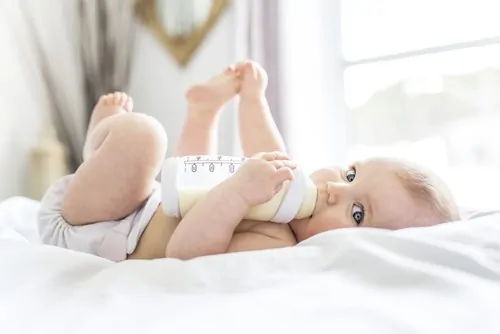
Baby teeth serve an important role in a growing mouth, and even though they’re only around for a short time, it’s crucial to take care of them. One of the most common problems associated with baby teeth is something known as Baby Bottle Decay. At our Long Island pediatric dental office, we’re here to talk about what exactly that is and how to prevent it.
Baby Bottle Tooth Decay is a term used to describe decay in a young child’s mouth, often caused by too much exposure to sweetened liquids given from a bottle. Milk, formula, and fruit juice all contain sugar, and if they’re left on teeth for too long, it could lead to problems with your little one’s teeth.
The sugars found within many common children’s drinks are what mouth bacteria love to feed on. When the bacteria feed, they produce acid. It’s this acid that eats away at the enamel, leading to decay and cavities. If decay is left untreated, your child may experience pain or even need to have severely decayed teeth pulled. Keeping baby teeth healthy until they’re lost naturally is important for proper speech development, eating, and smiling. They’re also placeholders for permanent adult teeth.
Baby Bottle Decay can be prevented by taking several precautionary steps including:
We’re here to get your baby on the right track toward a healthy, happy mouth with regular checkups and proper dental care, and we’ll work with you to give you advice on how you can help at home. We’re always welcoming new patients at our pediatric dental office in Long Island and welcome you to call us today.